- November 16, 2016
- Posted by: SportsV
- Categories: Event News, Features, Home News, Industry News, Interviews, News
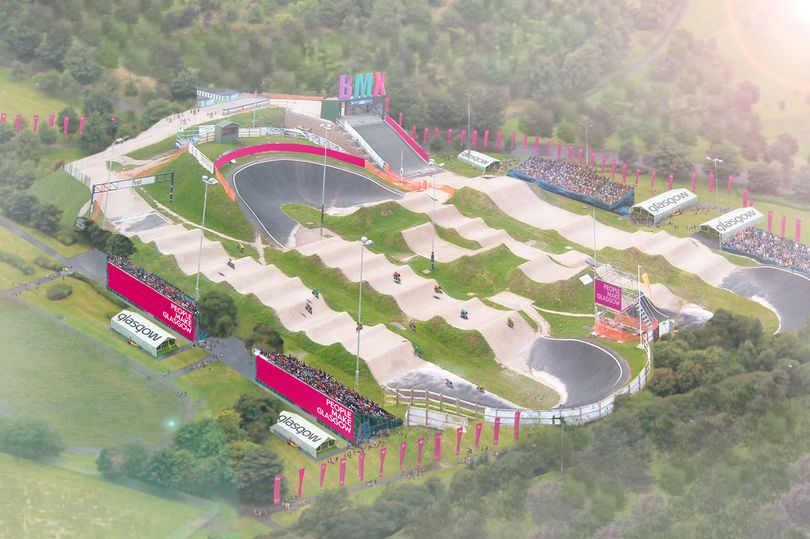
In this latest industry interview, Katie McIntyre speaks with Alastair Duncan (AD), Overlay Cluster Manager for the inaugural Glasgow 2018 European Championships, who shares interesting insights regarding overlay planning and delivery for world-class sporting events.
Alastair, as Overlay Cluster Manager for the Glasgow 2018 European Championships, what are your key responsibilities?
AD: There are a total of 11 competition venues and I am responsible for planning and delivering 4 competition venues at Tollcross International Swimming Centre (Swimming), Strathclyde Country Park (Rowing and Triathlon), Royal Commonwealth Pool (Diving and Synchronised Swimming) and Loch Lomond and Trossachs National Park (Open Water Swimming). I am also responsible for non-competition venues and there will also be a cultural festival as part of Glasgow 2018 which will involve a number of sites across the city.
The Overlay team plans and delivers all the temporary facilities including temporary seating stands, broadcast lighting, temporary accommodation, additional power requirements, camera platforms any other temporary facilities so that everyone can enjoy the event in a safe and fit for purpose venue.
For each venue, I work very closely with a sport competition manager, an event manager, the venue owners, broadcasters, the sport federations and other departments at Glasgow 2018 who are all experts in the sport or venue. As a team we work out what we need and then it’s my job to work out how to best make it happen, identify where there are competing requirements, find efficiencies and manage the delivery.
The Overlay team consists of engineers, designers, quantity surveyors and other disciplines that you would find on any construction related project and many of the methods and principles are the same.
Once we have all the design, planning and scheduling done, I then become responsible for on-site delivery of all the works required to put on a world-class sports event.
How have your previous experiences of working on Glasgow 2014 as Venue Development & Overlay Manager, as Overlay Manager at the Toronto 2015 Pan/Parapan American Games OC and as Site Operations Manager for the Emirates Airline Dubai Rugby Sevens informed your decision-making process and shaped the way in which you tackle the challenges of delivering venues for Glasgow 2018?
AD: Prior to joining Glasgow 2014, I worked on large complex projects, including sports facilities and stadium projects, so I already had some experience and understanding of the technical requirements of delivering sports related projects and other big complex projects. However, I basically went from working for a single client on a single complex project at a time, to working for up to 20 clients on multiple smaller projects as part of one big very complex project, it’s fair to say coming in to multisport events was a steep learning curve at first.
The experience I have from Glasgow 2014, Toronto 2015 and the Dubai Rugby Sevens means I am able to identify what the key elements and technical challenges are likely to be on a venue and highlight these early to the wider team. For instance, a bid document may outline a venue capacity or a client group level of service that will be a challenge to achieve, I can quickly identify this and work on the solution.
I can also quickly work out if an idea or proposal is feasible and what will work well. I also have to be fully aware of who could potentially be impacted by any decisions I make. I have to make sure I can justify the decision is in the best interests of the project, communicate it early to all the client groups and get agreement from the affected client groups. It is also essential to be able to take constructive feedback and to recognise quickly if a decision or proposal can be done better. I am always amazed at the calibre of the people I work with and their ability to conjure up some wonderful ideas and suggestions.


What are some of the latest technologies, products or innovative solutions that you are intending to employ at one or all of these venues?
AD: Some innovations will come from the technology side and are most obvious in the sport presentation, broadcast and lighting. For 2018, we are looking at Ultra Slow Motion cameras for some sports, LED lighting, new innovations in sport presentation and the latest in video screens to improve the spectator experience.
Some other innovations will also come from the suppliers who are always keen for new technologies and systems to be used in high profile events. This could be in less obvious things like new types of generators, modular seating stands or temporary accommodations.
Then there are the numerous challenges we will be face with during the design and planning process that will require creative and innovative solutions. These could stem from one or more of the physical constraints of the venue, the technical constraints of constructing something or budget pressures.
At both Glasgow 2014 and Toronto 2015 I worked on projects that constantly threw up challenges for the team that required innovation. This included creating a shooting venue from scratch on a highly protected marshland habitat to planning for seven different sports in one arena over the course of a Games with very challenging sport to sport transition timescales.
Finding new solutions to satisfy all the stakeholders can be tough, but are usually a really enjoyable and extremely rewarding part of the project and we are faced with some exciting challenges for 2018 which will require some creative thinking from the whole team.
How would you describe the challenge of delivering four such different venues, especially in terms of managing costs and the expectations of all the different stakeholder groups?
AD: Ha, the golden question, if anyone knows the easy answer, can you let me know please?
The main challenges are similar across most venues, with the cost v expectation you mention being a constant and ones outlined in the above question. Whilst there are many different ways to try and find the balance, or resolve some of the challenges, it always comes back to being able to articulate the issue in a way that makes clear that the solution lies in working together. At the end of the day, none of us are magicians and we need to communicate, collaborate and trust each other to work it out.
Of the three sports, the only one I have previous experience of is Triathlon, however the basic principles of planning a sports venue are always the same, start with the Field of Play and work out from there. Once the Field of Play is established, the athlete facilities, broadcast & media requirements, spectator areas and other services are all added. This is where I rely heavily on the sport specific experts as mentioned in question 1.
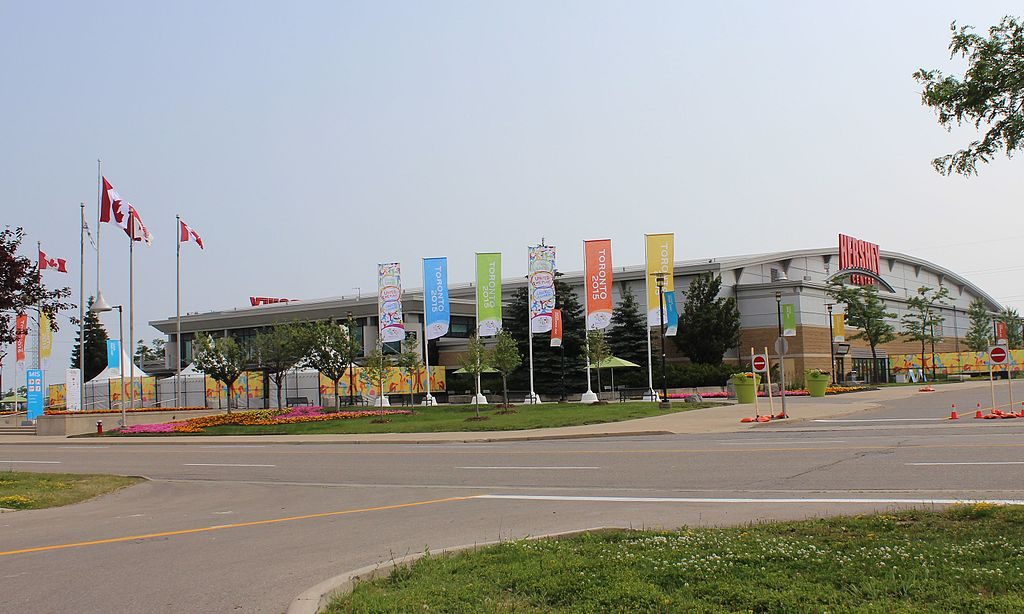
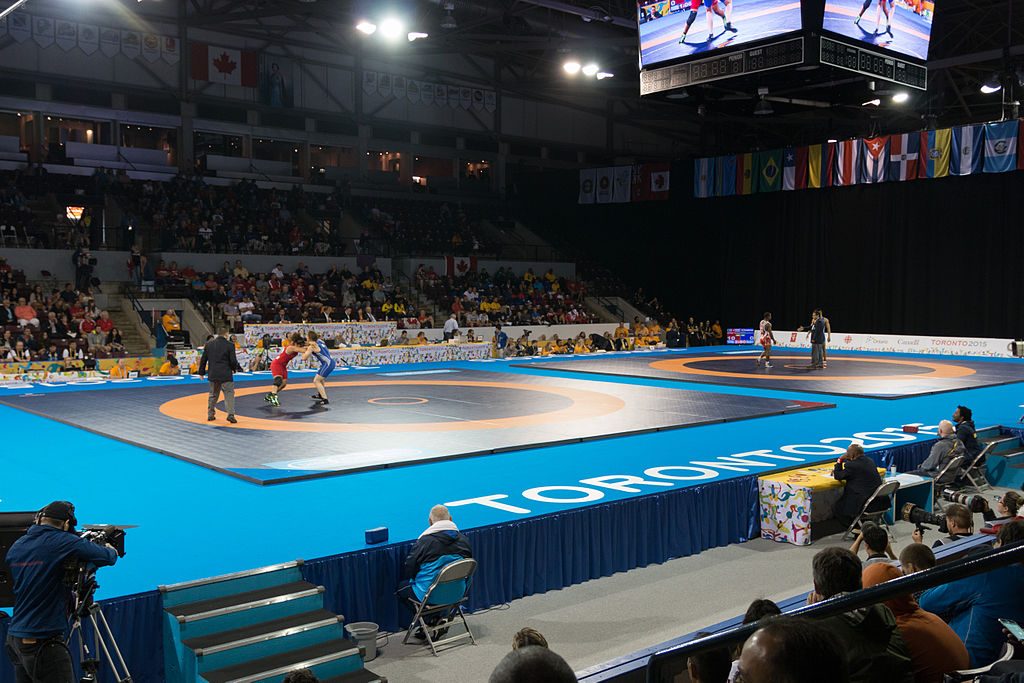
Over the last 6 years, you’ve moved from a European-based event, to a Canadian one, to a Middle Eastern one and now you’re back in Europe. When working on major sporting events such as these, how important is it that you take cultural nuances into consideration?
AD: In my experience this goes hand in hand with having respect for other people wherever I am working. Having respect for others and their cultural nuances has definitely played a large part in the success of all the projects I have worked on.
It was always and ambition of mine to work abroad and prior to working on sports projects, I had experience of working in various countries in Europe with my first overseas work experience coming at a very early stage in my career when I spent 3 months on exchange in Poland when the country was still under communist rule in the mid 1980’s. I subsequently worked on projects in France, Italy and Spain, and with design teams or clients from USA, Norway and Taiwan.
In Canada, I managed a project team that included Canadians originally from China, India, Mexico and Brazil, so whilst they all have Canadian traits, i.e., Canadians are generally knowledgeable, understanding and accepting of other cultures, they still had various nuances from their original countries. In Dubai, whilst it is a multi-cultural society, there are many other aspects to be aware of in terms of their laws and religion.
In Glasgow, Canada and Dubai, the organisations were all multi-cultural and diverse, so for the past 6 years it has been a daily professional experience. My partner is not from the UK, so it’s also a personal thing I live with and learn from every day.
Of course, not all nuances are ideal, for instance I’ve been called ‘Boss’ in some places which I don’t like, I’m quite happy with the name I already have. None of it is difficult, it’s just a bit of respect, which will benefit everyone and make the project more interesting and enjoyable.
What kinds of legacy developments are on your wish-list for the four venues you are in charge of planning and delivering? And what developments are already underway?
AD: For Glasgow 2018, we are using mostly existing facilities, many of which were used for Glasgow 2014 Commonwealth Games. The only new venue is for BMX, which will be a fantastic addition for the city. It is still a great opportunity to improve some venues and facilities, whether in the form of improved infrastructure, upgraded technology or improving the skills of the people who work on the venues. For instance, at Tollcross, there has been an ongoing programme of investment for the past 6 years that has led to not only the Commonwealth Games being staged, but also the British Championships, the IPC World Championships and of course the 2018 European Championships. It is a similar story at the Sir Chris Hoy Velodrome at the Emirates Arena with an impressive string of high profile events including the recent UCI World Cup.
Sometimes the legacy of an event might not be entirely obvious, however it is something that is at the forefront of planning. As an example, one of our key strategic objectives is to sustain the cultural legacy from Glasgow 2014. Cultural venues and their ability to bring the city to life are really important in achieving this objective and a significant amount of resource and work goes into the design, planning and delivery of the non-sporting venues.
Work has started at Strathclyde Country Park on an upgraded timing and scoring system for Rowing as well as a refurbishment of the Rowing finish line tower. This is being done by North Lanarkshire Council.
Work is due to start soon at Tollcross International Swimming Centre on building fabric improvements and design work is underway for the new BMX centre.

As for a wish-list, there are a number of things that I am working on that would be wonderful if they happened, however I can’t really detail what they are just now. I’ll let you know what ones came to fruition in 2018!
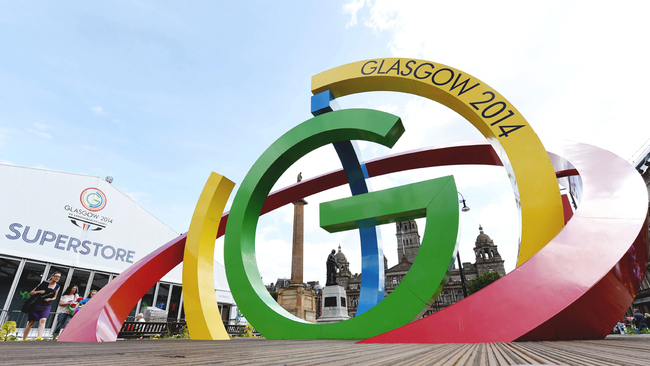
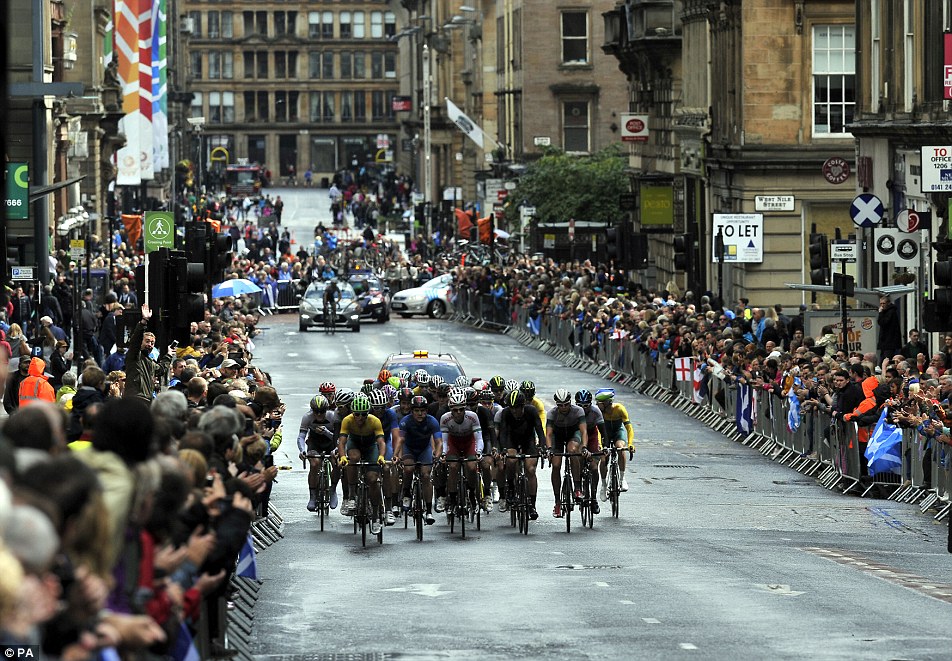
How do you keep up-to-date regarding the latest best practices, products, services and solutions?
AD: I generally use LinkedIn to follow industry suppliers who are always sharing new and innovative ideas, as well as joining groups (such as Sports Venue Business’) to gain insight to what others are doing.
I am also fortunate to work with people from a wide range of backgrounds and experiences that bring great ideas or things they have seen in previous projects. When these great ideas get the go-ahead, I simply play my part in making it happen as part of the wider team.
I also attend as many events as I can, although sometimes I find I’m more interested in how something has been done than the actual event. I was on vacation in Helsinki recently where I attended a swimming event that used a fantastic temporary outdoor pool in the harbour complete with a floating spectator standing deck area. I spent most of the time looking under the deck to see how they had done it.
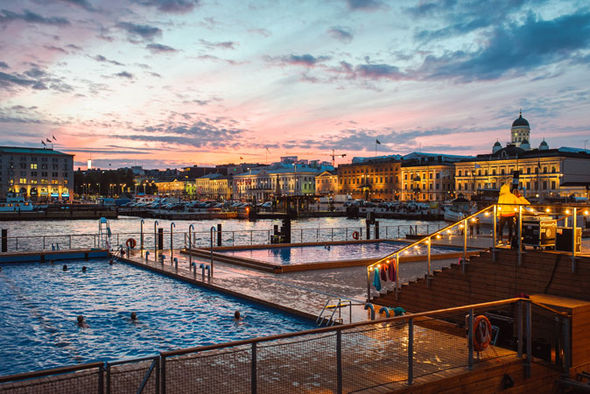
And finally, what’s the best piece of advice you’ve ever been given? And, if you could give one piece of advice to an industry peer, what would it be?
AD: I have been very fortunate to have worked with some fantastic people throughout my career who have given great advice and taught me a huge amount, however it’s still an easy one to answer.
When I was an apprentice in a Glasgow shipyard, I worked with an old shipwright who was an incredibly kind, intelligent (and tough) man. He advised me to never stop learning and to get out of the shipyard for a better life.
As for one piece of advice I would give … Whilst they are challenging and hard work, Sports events are supposed to be enjoyable, so make sure you are having fun and enjoy it.
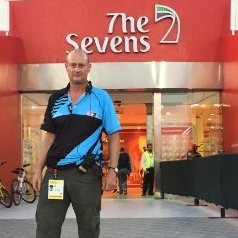

About the inaugural European Championships
Europe’s top athletes will compete in the inaugural European Championships – an exciting new multi-sport event bringing together some of the continent’s leading sports – in the summer of 2018.
The European Championships will be a new highlight on the global sporting calendar. To be staged every four years, the Championships will be a must-attend, must-watch experience that reaches beyond the dedicated fans of the individual sports to a much wider audience. The first edition will be held in partnership between Glasgow and Berlin.
As part of the event, around 3,025 athletes will compete in Scotland with a total of 8,500 people, including officials and media, expected in the country during the Championships. Glasgow is Host City for aquatics, cycling, gymnastics, rowing, triathlon and a new team golf event. Berlin will host athletics completing the line-up for the first edition of the European Championships.
The Championships will take place between August 1 and 12, 2018, and will take Scotland’s sporting reputation to the next level. Played out on front of a potential television audience of up to 1.03 billion people – with many more across digital channels – the event will elevate the status of European Champions.
Glasgow 2018 will not only be a celebration of world-class sport but also about much more than 12 days of sporting competition. It will allow Glasgow to continue its legacy journey by inspiring the next generation of young athletes. At the same time, Glasgow will use the event to deliver cultural and volunteering opportunities for local people.
For further information on Glasgow 2018, go to: www.glasgow2018.com
#SportsVenueBusiness

